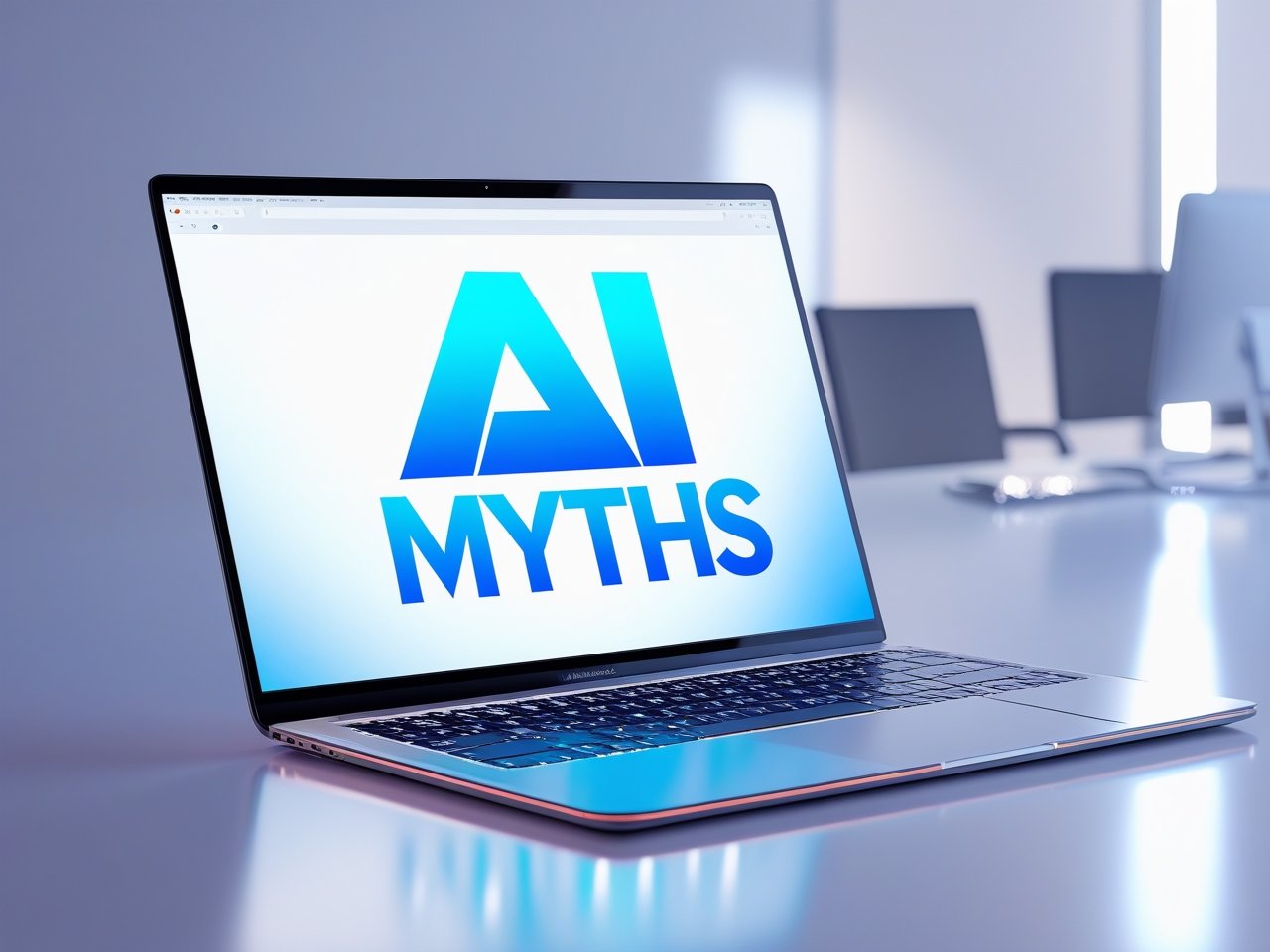Artificial Intelligence is one of the maximum transformative technologies of our time, but it stays shrouded in myths and misconceptions. From exaggerated fears to unrealistic expectancies, these myths regularly cloud the authentic potential and barriers of AI. In this text, we are able to be debunking not unusual myths approximately Artificial Intelligence and provide a clearer know-how of this fascinating area.
Myth 1: AI Will Replace Humans in All Jobs
The Reality: While AI is automating many tasks, it’s not poised to update human beings in all jobs. Instead, AI is enhancing productiveness and growing new opportunities.
AI excels at repetitive duties, information evaluation, and sample popularity. For example, in industries like healthcare, AI assists doctors by using reading scientific photographs, but it cannot update the human contact required for patient care. Similarly, in creative fields, AI tools like DALL-E and ChatGPT provide inspiration but can’t mirror genuine human creativity.
Evidence: A World Economic Forum file predicts that AI will displace 85 million jobs via 2025 however create ninety seven million new roles in fields like AI development, information analysis, and digital transformation.
Takeaway: AI is a device that enhances human skills, and employees can adapt by way of studying new abilities to thrive in an AI-pushed international.
Myth 2: AI Can Think and Feel Like Humans
The Reality: AI lacks awareness, emotions, and self-consciousness. It operates primarily based on algorithms and facts as opposed to instinct or feelings.
While AI structures like chatbots may additionally appear to keep meaningful conversations, they may be definitely processing language styles to supply responses. For example, OpenAI’s GPT fashions generate text by means of predicting the next phrase in a chain based totally on input statistics. These structures do not “apprehend” context or own feelings.
Evidence: AI operates on good judgment and information without subjective reports. Renowned AI researcher Yann LeCun emphasizes that current AI models are a long way from attaining human-degree cognition.
Takeaway: AI is a effective computational device but stays fundamentally specific from human intelligence.
Myth 3: AI Is Always Accurate and Objective
The Reality: AI structures are handiest as accurate because the records they may be educated on. Biases in information can result in faulty or discriminatory consequences.
For instance, facial popularity systems have faced complaint for racial and gender biases because of skewed schooling facts. Similarly, AI algorithms in hiring methods have occasionally desired certain demographics, perpetuating existing inequalities.
Evidence: A observe through MIT Media Lab determined that some facial popularity structures had blunders prices of as much as 34% for darker-skinned women, as compared to much less than 1% for lighter-skinned men.
Takeaway: Ensuring equity and accuracy in AI calls for numerous datasets and consistent tracking to minimize biases.
Myth 4: AI Will Take Over the World
The Reality: The concept of AI as a malevolent force bent on global domination is a staple of technology fiction, not fact.
AI operates within the parameters set through its builders. While worries approximately misuse or unintentional consequences are valid, stringent guidelines and moral suggestions can mitigate dangers. Organizations like OpenAI and UNESCO are actively working to set up ethical AI requirements to save you misuse.
Evidence: Experts like Andrew Ng have time and again said that AI isn’t always an existential risk but a technology to be managed responsibly.
Takeaway: The focus have to be on accountable improvement and deployment of AI, instead of fearing apocalyptic eventualities.
Myth 5: AI Is Only for Big Tech Companies
The Reality: AI is on the market to organizations of all sizes or even individual developers.
Open-source frameworks like TensorFlow and PyTorch have democratized AI, allowing startups, small companies, and hobbyists to construct AI-powered packages. From chatbots for customer support to AI-pushed marketing tools, the era is an increasing number of within reach for non-tech establishments.
Evidence: A survey with the aid of Deloitte shows that seventy three% of groups, consisting of small and medium-sized businesses, have followed AI tools in a few capacity.
Takeaway: AI isn’t one-of-a-kind to tech giants. Anyone with the proper tools and expertise can leverage its abilities.
Addressing Ethical Concerns
While AI provides severa possibilities, ethical challenges remain, consisting of data privateness, job displacement, and responsibility. Transparent AI development, sturdy rules, and ethical AI education are essential to addressing these troubles.
AI is a groundbreaking generation, however misconceptions about its skills, obstacles, and effect often lead to confusion and unrealistic expectations. By knowledge the truth in the back of by means of debunking common myths about Artificial Intelligence, we are able to higher admire the capability of AI and use it responsibly to advantage society.







